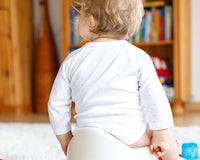Kids can wet the bed for many different reasons. In most cases, it occurs when the child is in the process of moving away from a diaper, but there are other times when the child is already of an older age but may still be wetting the bed. As a parent, you might find yourself at a loss but with a bit of patience and understanding, you can help them overcome bedwetting.
Bedwetting, also known as nocturnal enuresis, is a common problem that affects children of all ages. It is defined as the involuntary passage of urine during sleep. It affects around 20% of 5 year-olds and 15% of 8 year-olds. While it is normal for very young children to wet the bed, many parents become concerned if their child is still wetting the bed after the age of 8. However, there are children who can take a little longer, and even go through an episode of bedwetting when it already seemed like they had full control. Most cases are just a phase that ends up passing by itself. During this time, the best that parents can do is support their children so that they learn to control this impulse or seek help from specialists if the problem persists.
Why do children wet the bed?
First, it’s important to understand why children wet the bed. The causes can be very different, but the most common are:
- Developmental factors: Children develop bladder control at different ages, making some have an immature bladder or smaller bladder.
- Sleep issues: Nightmares can cause kids to have trouble sleeping, resulting in bedwetting. On the other hand, kids who are heavier sleepers may not wake up when they have to urinate.
- Diseases and medical problems: Some problems such as urinary tract infections, constipation, and diabetes can contribute to bedwetting.
- Stress: Children who are going through big life changes such as a big move or having a new sibling can cause stress, resulting in bedwetting.
Whatever the reason your child keeps wetting the bed, we have some tips that you can put into practice to help your kids.
-
Wait until your child is ready to do it.
Always approach this transition with patience and understanding. Overcome bedwetting is a process and it may take time. Wait until your child is ready, which can help elevate them to feel more confident and in control. Children develop bladder control at different ages and times. Some children might not be ready to stop wearing nappies at night, while they are ready during the day. Forcing your child too soon can lead to feelings of shame and frustration, and may even make the problem worse.
The best way to determine if your child is ready to stop wearing nappies at night is to pay attention to their behavior. Start removing the diaper during the day, and when they are able to stay dry for a few consecutive nights, they may be ready to make the transition at night too. During this transition it is totally normal to have some urine escape during sleep. In the absence of diapers, mattress protector covers can be your best tool to protect the bed. Night N Day has a full range of washable and reusable bedding that can help with this when little accidents happen.
Leave a spare pair of pajamas and sheets on hand overnight in case an urgent change is necessary. This can help children self-manage the problem and take charge in solving it.
-
Create a sleep routine.
Establishing a sleep routine can help your child stop bedwetting, as bedwetting is more common in kids who lack a regular schedule since their bodies may not be used to it.
An example sleep schedule can include:
- Taking a bath
- Eating dinner
- Doing an activity before bed
- Going to the toilet before going to sleep
- Going to bed and waking up at the same time each day
If your child follows the same routine every day, it can be easier to achieve control over his sphincter muscles, which creates better bladder control. Once your little one has achieved their goals, the schedule may be more flexible.
-
Control what your child drinks before bed.
Drinking too much fluid before going to bed can cause problems at night. It also happens to adults, but children have a smaller bladder and are still learning to control it. The less fluid they drink, the less urine they’ll produce at night, which means there’s a better chance to hold their urine in until they wake up.
Remind them to always go to the toilet before bed, so that their bladder is as empty as possible and does not cause problems during the night.
-
Reward, don't punish.
Be patient and never punish your child when they have an accident at night. They are learning and if we punish them for wetting the bed, all we are doing is increasing the pressure they feel to achieve their goal.
Positive reinforcement is our best asset. Giving words of support when they have gone a whole night without peeing can encourage them to keep working on it.
-
Consulting a doctor.
If your child’s bedwetting persists despite your attempts to stop it, it may be time to seek medical advice to rule out diseases or health problems associated with that. Certain medical conditions, such as diabetes, urinary tract infections can cause bedwetting in children. It’s also important to recognise that bedwetting can be a sign of anxiety or depression too. If you’re concerned about your child’s mental health, you should speak to a professional for advice and assistance.
Speak to your family doctor or contact a health professional with special training in children's bladders. The National Continence Helpline (1800 33 00 66) can provide further information on the assistance that's available in your area.
Parental support and creating a good family environment during this process is important, as the best approach to treating bedwetting is patience and understanding. Encouraging your child to go to the bathroom and limiting fluid intake before bedtime, as well as establishing a consistent bedtime routine will help.
Other methods:
- Bedwetting Alarms: there are alarms that get set off when they detect moisture. These alarms can be used on the bed or be placed in the child’s underwear. They can teach children to become more aware when they have a full bladder and to wake up and use the toilet.
- Medication: There are certain medications that can help reduce how much urine is made through the night. Make sure to research and check which one is most suitable for your child.
Remember every child takes their own individual learning journey. The most important thing is that they learn in a safe and understanding environment, so they can eventually play and have sleepovers with friends and at camps!
At Night N Day we have a complete range of washable and reusable incontinence products that grows, supports and moves with your Child - not against them. Our range of incontinence products for kids offers seamless protection during the day as well as kid’s bedwetting products for overnight use.
NIGHT N DAY is a registered NDIS provider.
----------------------------------------------------------------------------------------------
Should you require any product assistance … Did you know that we manufacture a complete range of incontinence products including absorbent underwear and waterproof pads? Some of these products also double as period-proof underwear.
We're with you Night n Day
If you have any questions about incontinence or want to know what incontinence products are the best for you or your loved one don’t hesitate to contact our friendly Customer Service team
- THERE’S NO SUCH THING AS A SILLY QUESTION!
----------------------------------------------------------------------------------------------
Web: https://nightnday.com.au
Email: gday@nightnday.com.au
Australia: (02) 9531 2011
International: +61 2 9531 2011
Disclaimer: No content on this website, or in this article, regardless of date, should ever be used as a substitute for direct medical advice from your doctor or other qualified clinician.







